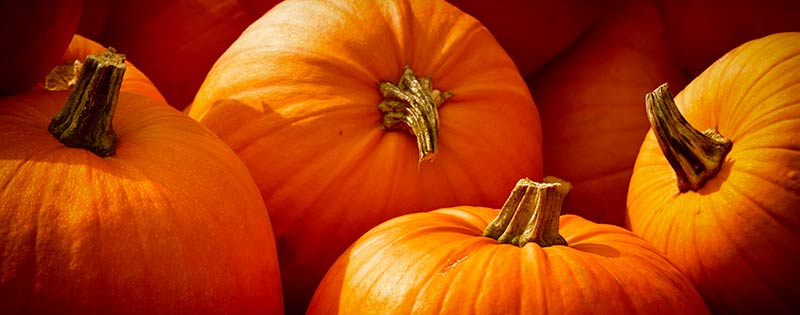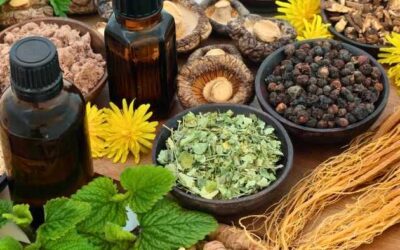by Brent Hearn •
Sure, the official first day of fall may still be a few days away for those of us in the Northern Hemisphere, but for many people, fall isn’t tied to something so rigid as when the sun crosses the celestial equator. Fall is a feeling, and for legions of sweater-weather fiends, that feeling begins with two little words: pumpkin spice. Just hearing the phrase can have folks digging out their flannel and comfy slippers in anticipation. (Heck, just reading it may have some of you altering your commute to swing by your favorite cafe to check out their seasonal pumpkin-spice-themed offerings.)
Of course, it matters not to the legions of pumpkin spice aficionados that many—if not most—items flavored with the blend are devoid of any actual pumpkin. But maybe it should. Besides being tasty, the fruit is packed with healthy nutrients that offer an impressive array of health benefits. (Yes, pumpkin—like all squash—is a fruit, not a vegetable.)
“What kind of health benefits?” you may ask. Well, unpack your favorite flannel, grab your pumpkin spice latte, and gather ‘round to find out!
Pumpkin is high in fiber.
Pumpkin has both soluble and insoluble fiber. Its high fiber content pays dividends in a variety of ways:
- It can reduce harmful LDL cholesterol.
- In conjunction with pumpkin’s high-water content, it can promote satiety, which can, in turn, promote weight loss.
- It can help to keep you regular. (The zinc in pumpkin seeds can also help keep things moving smoothly, too!)
Pumpkin is chock-full of antioxidants.
The health benefits of antioxidants are many, varied, and well documented:
- Antioxidants help to bolster your immune system.
- They can help protect your liver.
- They may help protect against certain cancers.
- They help to keep skin healthy, firm, and safe from sun damage.
Pumpkin can help to protect your peepers.
Pumpkin contains vitamins C and E, beta-carotene (converted to vitamin A when consumed), and the carotenoids lutein and zeaxanthin, all of which belong in the Eye Health Hall of Fame. (That’s probably not a thing, but if it were, they’d be there.)
Though it’s not some kind of cure-all bestowing perfect vision, the nutrients found in pumpkin have been linked with a reduction in the risk of eye diseases associated with aging and a reduction in the risk of developing cataracts.
It’s also really tasty.
Okay, so that’s not a health benefit per se, but it does make the medicine go down easier, right? It’s a heck of a lot more fun to live a healthy life when that life is palatable.
Pumpkin is a versatile ingredient that can be incorporated into any number of recipes. Even the seeds can be roasted and eaten as a high-protein snack or used to enhance other dishes (oatmeal, salad, etc.) Check out these ideas from The Pioneer Woman about how to work pumpkin into your next meal.
Sources:
Women’s Health: 9 Health and Nutrition Benefits of Pumpkins, According to Dieticians
Cleveland Clinic: The Health Benefits of Pumpkin
BBC goodfood: Top 5 Health Benefits of Pumpkin
healthline.com: Is Squash a Fruit or a Vegetable?
The Pioneer Woman: 40 Best Healthy Pumpkin Recipes That Are Both Sweet and Savory
almanac.com: Autumnal Equinox 2022: The First Day of Fall









 ▶︎
▶︎  Why is the Discount Challenge prize amount $15,024? Because that is the average “per-occurrence” fine for Medicare inducements. That’s not $15,024 per patient, that’s not per provider, that’s PER VISIT. Stinks, doesn’t it? To us, the prize amount is worth the investment if we can help our profession better understand proper discounting.
Why is the Discount Challenge prize amount $15,024? Because that is the average “per-occurrence” fine for Medicare inducements. That’s not $15,024 per patient, that’s not per provider, that’s PER VISIT. Stinks, doesn’t it? To us, the prize amount is worth the investment if we can help our profession better understand proper discounting.